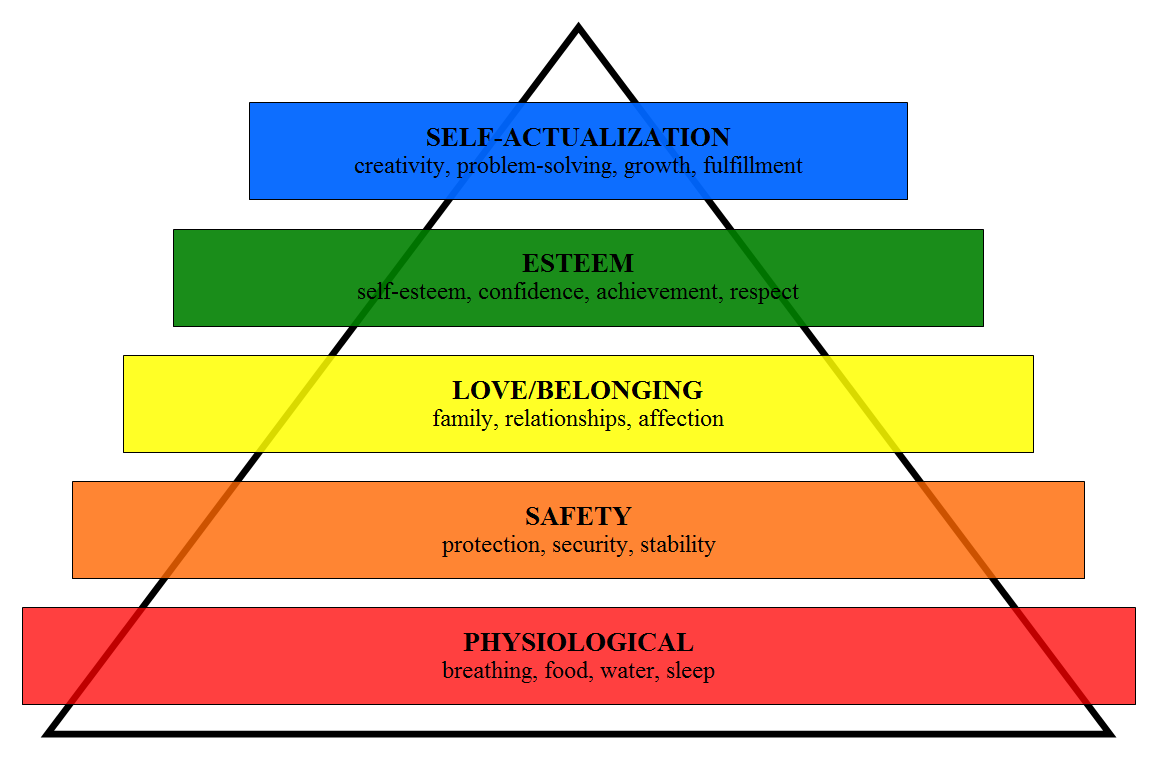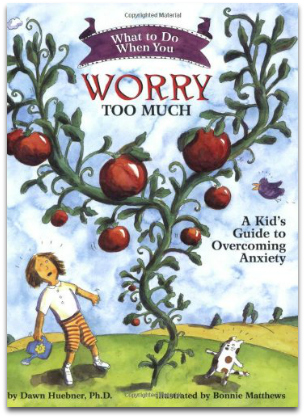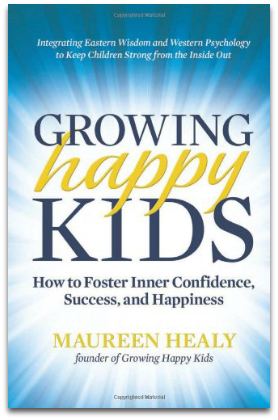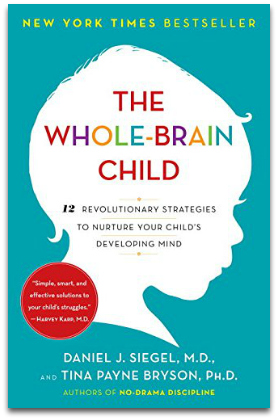 Have you ever noticed your kids reacting to stress in ways similar to yours? Have you taught them how to reduce stress?
Have you ever noticed your kids reacting to stress in ways similar to yours? Have you taught them how to reduce stress?
For many of us, we resort to acting out our own unique version of the ‘fight or flight’ stress response. We might internally ‘argue’ with what is happening. Or we might shut down and resist dealing with it altogether.
For me, my subconscious response is to force my will upon the situation — not the best way to respond when you are trying to be a positive parent.
My 4-year-old son, who has a flair for delay, one day decided he simply must find his ‘very-special-one-of-a-kind’ blue button. I was trying not to be late to teach yoga class and with everything else that had been going on in my life at that time, I was in no mood to search the house to find a button. So, I put my foot down.
“No, we don’t have time to look for it now. We’ll find it when we get back.” I said.
“But, mommy, I need it!” He said in truth.
“It’s not that important. Come here please.”
“NO!” he yelled and stormed away in a desperate search.
“Get over here right now! I’m going to count! 1….2….”
You can see where this is going. A perfect storm of circumstances culminating in a power struggle of epic proportions. Never underestimate the will of a 4-year-old.
Stress is without a doubt one of the biggest banes of modern life. It lurks silently below the surface and sabotages the best of our intentions when we least expect it.
Luckily, there’s hope for all of us.
Stress is NOT Inevitable
Stress is defined as “a state of mental or emotional tension resulting from demanding circumstances.” Sounds accurate, right?
What if I told you it was a lie?
It implies that outer circumstances are to blame for our inner emotional state. How liberating would it be to have control over what goes on inside regardless of what happens outside?
That would be true strength. Although difficult, it is possible.
Ekhart Tolle wrote, “stress is caused by being here, but wanting to be there.”
In fighting with my son, I had been creating stress for myself. I wasn’t present in the moment.
Then I realized…I’m on my way to teach yoga. How could I be effective at helping others relax if I am stressed? The whole point of it is to learn to be where you are and accept what is presented to you by your body.
Translated to life: be here now.
So, I stopped, closed my eyes, and focused on each breath. When I opened my eyes, I could think clearer.
Instead of resisting, I flowed.
I found a different button that I assured him was even cooler than the one he lost. And I was on time and calm for my class.
Our Thoughts Have an Impact
While limited stress can be healthy in helping us meet challenges, chronic stress can lead to physical and mental illnesses. It also promotes fear conditioning leading to a tendency to think fearfully.
Stress stimulates a part of the brain called the amygdala and floods the body with stress hormones like adrenaline and cortisol.
This reduces functioning in the prefrontal cortex (PFC).
The PFC manages memory and problem-solving while the amygdala suppresses emotional regulation and preps us for basic survival.
Which part of the brain would better serve you when dealing with your child?
Through effective stress management techniques, we can affect which part of the brain gets activated.
In other words, we have control over the thoughts leading to stress.
But…the cards are stacked. Did you know that stress levels in the U.S. today are higher than they were 25 years ago?
Surveys also indicate that parents underestimate how stressed their children really are.
The good news? Our generation is learning to deal with stress in more effective ways than ever. We can help our kids by developing emotional intelligence.
We always have a choice when confronted with potentially stressful situations. We can either revert back to habitual patterns of behavior or use them as opportunities for growth.
Both for our benefit as well as theirs.
Maslow’s Hierarchy of Needs: 5 Key Areas of Stress Management for Both You and Your Kids
 Maslow’s Hierarchy of Needs is a psychological theory for understanding human motivation, behavior, and potential. Each step represents areas in life requiring fulfillment in order for personal growth to occur.
Maslow’s Hierarchy of Needs is a psychological theory for understanding human motivation, behavior, and potential. Each step represents areas in life requiring fulfillment in order for personal growth to occur.
But progress is never linear. Everyone rises and falls among these levels throughout their lives.
Some areas are mastered while others require extra attention. The important thing is to understand ourselves better so we can meet our own needs as well as the needs of our children.
Let’s take a look at how we can begin to address each area and keep them from becoming a source of chronic stress, starting with the lowest level.
LEVEL 1 – PHYSIOLOGICAL: EVALUATE THE BODY
What happens when your car runs out of gas? It’ll shut down and refuse to do what you want, right?
The same can be said for humans when the body’s physiological needs aren’t met.
When we’re tired, hungry, sick, or injured we can’t perform tasks with any real measure of quality.
Knowing that, we can be gentler on our kids, and ourselves, if behavior goes astray when the body is under stress.
Ideas to Consider:
 In Fight Back With Food: Use Nutrition to Heal What Ails You
In Fight Back With Food: Use Nutrition to Heal What Ails Youby Reader’s Digest, certain whole foods are shown to alleviate stress symptoms when consumed regularly. Try bananas and potatoes for serotonin production (mood enhancement), broccoli for nerve regulation, and avocadoes to help relax muscles.
- Try aromatherapy through the use of essential oils. Just pick one you like for the effect you want! For instance, lavender has a relaxing effect on the brain and induces an immediate state of calm in the body. Instant spa moment!
- Include exercise, plenty of sleep, and a healthy diet into your routine. As parents, we often neglect our own needs. But, if we allow our tank to run empty, there’s nothing left to give. And don’t feel guilty. Our kids will learn the value in caring for themselves in the process by watching us.
- Build awareness by doing a body scan. Stand up straight with arms at your sides. Starting at the feet and slowly working up to the crown of the head, note any areas of discomfort. If possible, address them. If not, simply allow them to be as they are.
LEVEL 2 – SAFETY: CULTIVATE COURAGE
We’re all afraid of something.
When my now 7-year-old daughter started kindergarten, she began taking the bus to school everyday. She soon developed anxiety that the bus wasn’t safe and would take her to the wrong school or home.
She begged me to drive her. But I thought that’d give her a crutch. An out.
I worried that it would validate her fears.
 I tried appealing to her sense of logic, but she was convinced. I was at a loss until reading Dawn Huebner’s book, What to Do When You Worry Too Much
I tried appealing to her sense of logic, but she was convinced. I was at a loss until reading Dawn Huebner’s book, What to Do When You Worry Too Much.
In it, she discusses concepts like ‘Worry Time’ and ‘Worry Bullies’.
Fears can act like monsters in our heads that bully us into believing what they say. I gave her 5 minutes every night to vent her fears and then she’d list positive outcomes.
Instead of wallowing in anxiety, she learned to recognize it as her Worry Bully talking and verbally tell it to stop. She began replacing scary thoughts with reassuring ones and developed the courage to test them.
Today, she is much more trusting and flexible with change.
Ideas to Consider:
- Use an earlier success as an example. Consider a situation in your own life that you felt scared. What did you do about it? How did your bravery in the face of fear help you overcome that situation? Remember to highlight the resolution and use it to inspire confidence.
- Think outside the box. My son was once petrified of going down tube slides. It was only when he climbed up the slide first that he realized it wasn’t so scary after all. Enlist your child’s help in brainstorming a solution.
- Cultivate feelings of security through a visualization exercise: Stand tall with arms at your sides. Imagine you are a tree with roots reaching deep into the earth. Lift your arms out and up like branches. Stress is the wind rustling the leaves. Use your breath to take your attention down deeper into your body (the trunk) where you feel protected. After a few breaths, open your eyes and know that you are safe.
LEVEL 3 – LOVE/BELONGING: NURTURE ACCEPTANCE
There’s no doubt that we love our kids.
But life gets so busy sometimes that everyday responsibilities can cloud our awareness of how we’re showing it.
Modeling our love through patience and acceptance is hard when we’re stressed. When that happens, the messages we send can be more critical than loving.
Do you ever find it hard to be nurturing while juggling a million different things?
For me, trying to cook dinner while helping my daughter with her homework can make me frazzled and leave us both feeling tense.
I realized that I was so distracted that I had little patience when she’d get frustrated. I just wanted her to get her homework done and that’s it! My intention to model healthy responses to stress went up in smoke.
But, even more importantly, I wasn’t confirming my unconditional love. In fact, I’m sure that during those moments my approval felt very conditional to her.
In my attempt to force her to feel what I thought she should, I was trying to change her. No one responds well to that!
Ever so slowly and with conscious effort, I began allowing her to express her feelings without judgment. In developing emotional intelligence, I’m gaining more control over my own feelings so she knows that I think she’s great even when her behavior isn’t.
She still doesn’t like homework, but her attitude is improving. Thankfully, mine is too. 😉
Ideas to Consider:
- Separate behavior from the child. Children have intrinsic value, but telling them they’re being ‘good’ or ‘bad’ sends the message that they themselves are one or the other. Try to remind them that they have a choice whether to behave in positive or negative ways. You can impose consequences without retracting love by watching your thoughts about their behavior. Don’t get stuck in mentally fighting with it. By accepting them even now, you open yourself up to ideas for resolving the issue.
- Be present. Often, we are so busy ‘doing’ that we neglect simply ‘being’. Kids can tell when we’re not really listening. Take time to really listen to your child with your eyes, ears, and heart whenever you can. Nurturing them on this level helps them feel more content within themselves and less prone to stressful thoughts in the first place.
- Cultivate love with a heart-opening yoga pose. Lie down in Relaxation Pose with a few pillows placed underneath your back lining the spine. Allow your shoulders to gently fall to either side. Breathe deeply. Open up your chest and imagine the energy of your heart filling the room. After a few breaths, open your eyes and know that you have a limitless supply of love for yourself and others.
LEVEL 4 – ESTEEM: DEVELOP SELF-CONFIDENCE
Everything our children need to succeed is already inside them. But, they have to believe that for it to be true.
Self-talk, the inner voice, reveals our personal beliefs about ourselves.
Have you ever questioned your own self-talk? Do you believe everything you say to yourself?
When I make mistakes as a mom, I’m harder on myself than anyone could ever be. My confidence goes down and I feel like the worst mom on the planet.
It’s when I choose to believe that punishing self-talk that I allow stress to take over.
Wayne Dyer once wrote, “I cannot always control what goes on outside, but I can always control what goes on inside“.
Life will inevitably hand your child situations where their confidence will be tested. But, regardless of the challenges they confront, they must learn to believe in themselves.
 Maureen Healy in Growing Happy Kids
Maureen Healy in Growing Happy Kids asserts that self-confidence is not a biological gift, but rather a learned trait.
We can teach them that they have a choice between automatic thoughts that reflect their history and habits or ones that align with who they want to be.
Ideas to Consider:
- Empower them. Offer choices and ask their opinion when completing tasks. This helps them build confidence in their own power to affect positive outcomes. It also let’s them know that they are valued as a separate being with ideas all their own. Also, teach them effective communication skills. This helps them express clearly how they feel and what they need.
- Read books on self-esteem
. Choose ones that emphasize just how wonderful your child already is. Relate the story to your child’s life.
- Discuss success stories. During moments of self-doubt, remind yourself and your child of times where you/they overcame stressful, confidence-busting situations. And just like you did before, you will rebound again, even stronger.
- Develop self-reliance through meditation. While sitting comfortably, focus on the sensation of the breath going in and out of the nostrils. Feel the coolness of the in-breath and the warmth of the out-breath. Continue to breathe, but close your eyes. Allow the facts of a problem to arise in your mind without focusing on the hurt. Be open to any ideas that come up. After a few breaths, open your eyes and know that you have what it takes to see this through.
LEVEL 5 – SELF ACTUALIZATION: ADOPT AN OPEN PERSPECTIVE
Self-actualized people are ones who aren’t restricted by limited thinking. Brainstorming and creative problem-solving come naturally. When obstacles arise, they have learned not to take them personally. They have faith that a solution will be found when they think objectively around a setback. In doing so, they’re quickly back on track to achieving their goals.
Needless to say, kids need as much practice as they can get so these traits can become part of their character as adults.
Disagreements that arise between siblings are simply chances for you to help them develop these skills.
Some days it seems like my kids want to give me plenty of opportunities when they fight more than they get along!
Those are long days. Sigh…
But I can’t realistically expect them to just know how to resolve conflict. I have to teach them.
As adults, when we’re stuck in our stress response, it’s hard to be open to alternative perspectives. Often, the only feelings we’re thinking about are our own.
Children have the same problem.
 Dr. Dan Siegel, in his book The Whole-Brain Child
Dr. Dan Siegel, in his book The Whole-Brain Child, discusses ways to connect through conflict, helping your child understand the context surrounding a grievance.
Inspired by his advice, I’ve taken an approach that involves bringing both my kids together after an argument. Then, taking turns, they calmly voice their concerns.
They both try to listen to each other’s perspectives without interrupting.
The goal isn’t as much about digging into past details as it is about finding a solution for the future.
I ask them to offer suggestions, but they both have to agree before ‘making a deal’ in compromise.
Sometimes I even write up a ‘contract’, have them both sign it, and post it on the wall in our playroom.
And, if you really want their creative juices to flow, have them draw a picture of the conflict on one side and the resolution on the other.
It’s work. But over time, you’ll referee less, and they’ll work things out more on their own.
Ideas to Consider:
- Build emotional awareness. Teach your child to trust that their feelings will be honored by meeting them with compassion. They will feel safer, less defensive, and more receptive to solving the problem. In turn, they will learn that doing the same for others will result in more effective conflict-resolution.
- Look through another’s eyes. Encourage your child to broaden their perspective by considering the problem from someone else’s point of view. Could there be factors that weren’t considered before? Solutions can be found when they free themselves from subjective thinking.
- Engage both head and heart. Ask questions about how they feel and what steps they think would help in finding a solution. Teach that a balance of both is ideal for authentic decision-making.
- Try a creative-clustering writing exercise. Write a word at the center of a page that pertains to a problem. Draw a circle around it. Then, without mental censorship, connect whatever words come to mind that are linked to the original word. Work out from the center for 5-10 minutes. Highlight words that are solution-based and, on the back of the paper, write freely about how to implement them.
And there you have it…5 areas for minimizing stress while becoming stronger and more resilient along the way.
Just a few more tools in the toolbox to help us, and our kids, on the journey.
The 2-Minute Action Plan for Fine Parents
For our quick contemplation questions today, think about these –
- How much stress do you feel you experience on a regular basis?
- What methods have you tried to reduce stress and prioritize calm?
- Have they worked?
- How do you handle stress in your child?
- What approaches can you take inside yourself that will help you model healthy coping skills?
TIP FOR THE WEEK:
Try to focus on transition times of the day. Set an alarm as a reminder.
For example, my daughter returning home from school is a big one for me. I try to make it a special priority for staying present and aware.
Pick one situation and focus your energy there.
The Ongoing Action Plan for Fine Parents
Make a list of the pros and cons of modeling stress management tactics and keep that in a place you can view often.
As life gets messy or routine, we tend to fall back into old habits and patterns of behavior.
Trust me, auto-pilot is not your friend!
Securing your motivation for change is essential to success. Experiment with various coping strategies and find something that works for you.
Make that your ‘go-to’ technique.
Baby steps are key. Be kind and gentle to yourself. We are all learning as we go.
“Do what you can, with what you have, where you are.” – Theodore Roosevelt
Our nursing writing services cover the following areas among others: Nursing interventions and rehabilitation, law and ethics in nursing, gerontic nursing care, chronic and complex nursing care, community health, paediatric health, mental health, aged care, palliative care, and oncology. https://nursingessaywriting.com/nursing-research-paper-writing for outstanding grades at nursing school.
I noticed that and a half times that my students at school react to stress in really different ways. Someone is angry, and someone quietly sits in a corner. However, they take an example in adults. But with time these methods can change. When I was a student, the amount of written work was driving me crazy. It was at that time that I decided that my work could be delegated. I turned to the https://paperenglish.net/term-paper/ service. They unloaded me and I concentrated on my scientific activity, which I do not regret at all, and I think that I correctly prioritized.
Hi Elizabeth
Great article. We are Very Proud of You.
God Bless
Vince and Linda Hernandez.
Thank you Vince and Linda! I’m so glad you found this article beneficial. Blessings to you as well!!
Hi Elizabeth,
Thanks for sharing your great article!
One thing I try and do to alleviate my stress is to get to the bottom of it. So, when I get home from work and the kids are underfoot and wanting attention, I’m tempted to get a little cranky.
But if I realise that I’m not stressed about them – I’m actually tired and hungry and keen to get dinner on the table – I can focus. I can take time to help them with quick things, and explain that longer things will need to wait. I can also say, “Right now I’m cooking dinner, but I’m happy to listen if can talk while I cook.”
This helps them understand that I want to listen and still get us all fed. 🙂
Great tips, Cate!
If I’m cooking from scratch the recipe tends to require my full attention. I guess you could say it’s a good thing I don’t cook like that every night!! 😉
Thank you for commenting and sharing what works for you!
Thank you Elizabeth – this is a brilliant, well researched and thorough post. We have too much “stress” in our little family life like everyone with the demands of work, home and raising little ones. This has been a timely reminder for me to stop, take a breath and look at the big picture. And you are so right when you say kids know when we’re pretending to listen – I’ve been guilty of it lately and when I am present I see my sons face light up, instant reward. I’ll be following your action guide on this topic, thanks again.
We are all guilty of that, Tracy! It’s easy to be distracted amidst the business of the everyday to-do list.
These amazing feats of technology we call ‘smart’ phones make information available at our fingertips but at the cost of total reliance on them to fill all downtime. We have to be even more diligent and vigilant of how we are interacting with our kids.
Thank you for your thoughtful comment. I appreciate it!!!
I will definitely share your article with my friends. Last year I have noticed a tendency to become people more wicked. Society tendencies and politics and sucking all the energy from the people. A friend of my got many insults cause his son is using homework doer like https://wedohomework.net/ and she is okay with that. I don`t see anything bad. The boy is working hard to help her mom and little sister, that he simply has no time for doing homework. And doing homework doesn`t mean that you will have knowledge.
Thank you Tyson!
I sincerely appreciate your kind words and am very glad that the article has helped you in this way. Making a committed effort to modeling emotional intelligence is so important both for our own growth as well as our children’s healthy development into adulthood. Although easy to accept, it is difficult in practice, but always worth the effort.
Be well…inside and out!
What a truly keen, enlightening, and thoughtful article on a topic that most parents deal with at varying levels. Your article not only deals with identifying the condition at any level, but provides a parent with practical steps for eliminating the disruptions it causes to everyday life by developing life long tools and skills for success.
And it doesn’t stop there. What is truly exceptional is the insight of how the parents development and utilization of these skills will truly benefit their children. By putting these skills to work in your everyday life, others, and especially your children, will be impacted directly by their own personnel acquisition and development of these techniques. Hence forth, you the parent will not only have impacted your own personal being, but increased the ability of your child to find true peace and contentment in their adult lives. “What parent wouldn’t want to have that impact on their child’s future?!” Bravo Elizabeth, and please accept my sincere appreciation for your kindness in sharing your insight with all of us struggling parents in the world.
Hi Elizabeth,
Very nice article. Today’s kids are more stressed than what we used to be in our childhood days.
You covered all ways to deal with stress which would be really helpful for parents to help out kids and teaching them to be more balance and at peace.
Thanks!
Thank you, Varsha!
Our stress response can be as unique as the ways in which to deal with it and I just covered a few!
My hope is that we, as parents, actively seek out ways that work for each of us because the consequences of holding onto stress (as we all know) can be painful for both ourselves and our children.
The best to you in your journey…
Nice article and some useful ideas. But I would hesitate to speak in absolutes about how avoiding stress is “always” a choice or an attitude adjustment. When my husband was deployed the first time to Iraq I had a preschooler, a toddler, and was two months pregnant. He was gone 15 months and I had relatively no help. I did my best, and a lot of days had to just try to get by moment to moment, but long term stress takes a toll. It creeps up, it builds, and it’s painful, and there were certainly moments where I had physical reactions to it that were not anything I could choose differently about. I think about that a lot for people in situations of chronic health problems or poverty where the stress has a cumulative effect.
Korinthia,
Thank you so much for sharing your story. I feel as though my transition to motherhood was extremely stressful at times for reasons similar to yours. It was only when I realized that my outer circumstances were mostly out of my control and I was going to continue to be stressed out until I changed my perception of them that I finally understood how to cope effectively.
While I agree that speaking in absolutes is a practice better avoided because there are many ways to view a situation, it is important to remember the power of cultivating awareness of our own thoughts, emotions, and actions. Without it, we are likely to allow the stress we feel to take too great a toll. It can surely build, as you said, without our intervention.
I am grateful for your comment as it reminds me of those difficult times and the lessons learned on the other side of them. Thank you! <3
Just want to add that the feeling of stress is something that we all know comes up every now and then. No one is immune (I wish)!! We’re all on our own journey and that’s a beautiful thing. <3
Very apt for the times and thank you for calling out that something lurking under the surface causing us to behave like monsters inspite of our best intentions – towards our kids, to other human beings. We often talk about stress as that factor beyond our control and its cause as everything except the self – this discussion has been long overdue – thanks for writing this!
Thank you, Sudha!
Stress is tricky because it is felt differently by everyone. The situations that may be stressful for me may not be stressful for someone else! Our triggers are very personal and it can certainly make us act like monsters sometimes!!
The struggle is real (and that’s OK) because day-to-day awareness is a difficult skill to learn and embody, but is key for lasting change.
Wishing you the best… 🙂
As a grandmother this opened my eyes as to how my children are raising there children. Thank you for great information,and new ideas to help me be a better nana, when my children would tell me what they were trying to do I felt they were sparing the rod to spoil the kid. But I think there is always more then one way to teach so again Thank you for a great artical.
Hi Liz! Every generation raises their children a little (or a lot) differently, but each can learn from each other by remaining open to ideas. Thank you for sharing and understanding how vitally important Nanas are! 🙂